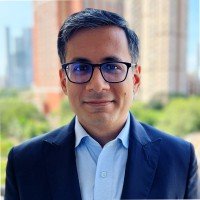Particle Health and CureIS, two healthtech startups have recently filed lawsuits against Epic Systems, the largest provider of electronic health record (EHR) systems in the United States.
Epic, known for supplying EHR software to major hospitals and healthcare providers across the country, is being accused of engaging in anticompetitive conduct that allegedly stifles innovation and limits fair access to critical healthcare data.
Ronin Legal takes a closer look.
Background
Epic wields significant influence over Carequality, an interoperability framework enabling nationwide care coordination, facilitating its ability to determine which entities gain access to patient data and artificially affecting competition throughout the industry.
This has drawn the attention of the Department of Health and Human Services (HHS), leading to increased scrutiny of Epic’s compliance with information blocking rules.
Particle Health Inc. V. Epic Systems Corporation
On September 23, 2024, Particle Health Inc. filed a complaint in the U.S. District Court, accusing Epic Systems of violating the Sherman Act by leveraging its dominant position in the EHR market.
Epic sought to dismiss the case in December 2024, and Particle responded with an opposition in January 2025.
Plaintiff’s Arguments
Particle Health has alleged that Epic Systems used its market dominance to engage in exclusionary practices, particularly targeting competition in adjacent markets that digitize traditional insurance processes.
According to the complaint, Epic restricted Particle’s access to patient records within the Carequality network in an effort to block its entry into the payer platform space.
Particle argues that Epic’s conduct constitutes a violation of antitrust laws, under Section 2 of the Sherman Act prohibiting companies from using monopoly power to exclude competitors, with broader consequences that undermine patient care and inflate healthcare costs.
The company claims that Epic initiated a “multi-pronged campaign to destroy Particle and actively snuff out competition.” This campaign allegedly extended beyond access restrictions and included obstructing the onboarding of new customers, deploying fear, uncertainty, and doubt (FUD) tactics, attempting to overwhelm Particle’s systems, and manipulating the Carequality dispute resolution process to delay or derail operations.
Dispute Resolution and Outcome
In October 2024, Carequality completed its first formal dispute resolution process involving Epic and Particle Health.
Epic was instructed to publish clear, objective criteria for data query permissions under its policy and to demonstrate compliance over the following six months. Meanwhile, Particle committed to a corrective action plan aimed at improving onboarding standards and ensuring accurate data disclosures.
This resolution temporarily addresses operational issues within Carequality, without influencing the ongoing antitrust lawsuit.
Cureis Healthcare v. Epic
On May 12, 2025, CureIS Healthcare, Inc. filed a lawsuit in the U.S. District Court claiming Epic engaged in anticompetitive practices. It brings several legal claims, including tortious interference with contractual and prospective business relationships, trade libel, and violations of the Defend Trade Secrets Act, the Lanham Act, California’s Unfair Competition Law, False Advertising Law, and the 21st Century Cures Act’s provisions on information blocking.
Plaintiff’s arguments
CureIS’s complaint accused Epic of systematically undermining its business through various means, such as, interfering with customer relationships, pressuring shared clients to terminate contracts and making false statements about both its software capabilities and security.
It was accused of blocking access to critical patient data, violating Section 4004 of the Cures Act, which prohibits practices that “interfere with, prevent, or materially discourage access” to electronic health information.
It was further alleged that Epic also misappropriated trade secrets disclosed during integration discussions, in violation of nondisclosure agreements and implemented an “Epic-first” policy that prioritized its own services over competitors.
Regulatory Context and Industry Impact
FTC Scrutiny
These lawsuits come at a time of growing federal scrutiny over the power held by major players in healthcare IT.
In March 2024, the Department of Health and Human Services (HHS), working with the Federal Trade Commission (FTC) and the Department of Justice (DOJ), released a report raising concerns about market consolidation, limited data sharing, and the lack of competition in digital health systems.
Based on over 2,000 public comments, the report found that consolidation in the healthcare industry has driven up costs, reduced access, and lowered the quality of care for patients.
Broader impact
Regulators are increasingly focused on enforcing the 21st Century Cures Act, particularly its prohibition on “information blocking,” to ensure fair access to health data across the ecosystem. The complaints against Epic enforce these priorities, accusing the company of leveraging its influence over frameworks like Carequality to control competition.
Such disputes also reveal structural challenges for healthcare providers and balancing long-standing contracts with dominant vendors like Epic while seeking to collaborate with more agile healthtech firms that promise better care and lower costs. This is where experienced healthcare attorneys play a critical role for advising startups, negotiating contracts, and guiding regulatory responses in a complex and evolving digital health ecosystem.
Particle highlights rising health plan costs due to restricted data sharing, while CureIS points to obstacles in improving Medicare and Medicaid programs. These concerns resonate with current policy goals emphasizing patient-centric data access and increased competition in digital health.
Conclusion
The lawsuits brought by Particle Health and CureIS mark a pivotal moment in the challenge against one of America’s most powerful healthcare data companies. These cases go beyond traditional antitrust claims by invoking healthcare-specific regulations and raising urgent questions about data access, innovation, and patient welfare in the digital age.
As Epic faces its most serious legal challenge, the outcome has the potential to redefine competition in healthcare technology and set far-reaching precedents for how dominant firms in data-intensive industries must balance market power with a duty to enable innovation and equitable access.
Authors: Shantanu Mukherjee, Alan Baiju, Mohak Vilecha










































